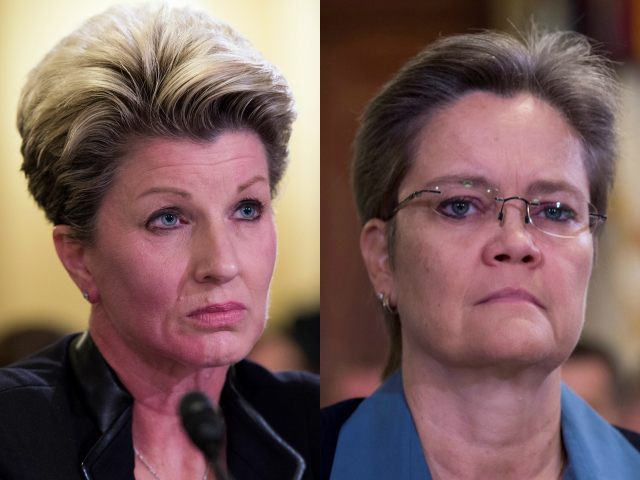Two officials for the Department of Veterans Affairs — at the center of the scandal plaguing that agency — will keep their jobs and have proven impervious to efforts of reassigning them.
“Diana Rubens, Philadelphia Regional Office director, and Kimberly Graves, director of the St. Paul, Minn., regional office, have faced harsh criticism since an inspector general report last fall accused them of pocketing more than $400,000 in moving costs for questionable job moves,” the Military Times reports.
“Lawmakers have repeatedly accused the pair of gaming the promotion system for personal gain, at the expense of veterans care. VA leaders have criticized the two only for ‘judgement errors’ in how they handled the job moves, and supported both as reliable and responsible executives,” the report continues.
Despite that bit of agency spin, VA officials tried to discipline the executives and assign them to different positions — tried and failed.
The Merit Systems Protection Board shot down the disciplinary action, and both Rubens and Graves kept their jobs, with gushing praise for their management skills from Deputy VA Secretary Sloan Gibson, followed by some hedging from Gibson that disciplinary action against the two, and two other senior executives, might still be forthcoming.
This despite an Inspector General report that charged Rubens and Graves with “abusing their authority to reassign other directors to jobs elsewhere within VA, then moving into the vacant positions themselves,” as the Military Times puts it.
“Investigators said the moves carried with them generous relocation payouts. Graves, who makes nearly $174,000 a year, got more than $129,000 to move from Philadelphia to Minnesota. Rubens, who makes $181,000, received more than $288,000 to move from Washington, D.C., to Philadelphia,” says the report.
At least the scandal forced the VA to suspend that expensive relocation program, which blew $1.8 million on reassigning 23 senior executives — almost always with pay raises, as the Washington Post reported, even though a freeze on senior executive pay had supposedly been ordered by the White House. The program was supposed to be used only rarely, for jobs that were exceptionally difficult to fill.
When Acting Undersecretary for Benefits Danny Pummill was asked in November by the House Veterans Affairs Committee how the program could have been so flagrantly abused, he mumbled, “We weren’t paying attention to everything we should have been paying attention to. We need to do a better job of that.”
“It’s devastating that the senior leaders are not held as accountable as the lowest people in the organization,” Pummill admitted.
Acting Inspector General Linda Halliday vowed to Congress that “the most critical change” to the agency’s culture would be “ensuring that those who abused the program are punished.”
Diana Rubens and Kimberly Graves pled the Fifth and refused to testify on the matter. Now they have become the latest in a line of Obama administration officials to face no disciplinary action for behavior they claimed they couldn’t discuss without implicating themselves in criminal activity.
Pummill was wrong about the VA “needing to do a better job” of policing abuse at the highest levels. All it really needed to do was wave the scandal away, even though the Rubens and Graves cases were supposed to be the first high-profile exercises of new legal authority the VA was given to speed up disciplinary action. Refusing to give Congress anything but vague promises of reform, and holding absolutely no one accountable for their actions, continues to be a successful strategy for the Department of Veterans Affairs.
As the Military Times reported on February 1, the major reason cited by an administrative judge for overturning the punitive demotion of Rubens and Graves was that another executive, Beth McCoy of the Veterans Benefits Administration, did the same thing and got promoted. It was deemed unfair to punish Rubens and Graves with “inconsistent treatment” for a comparable offense.

COMMENTS
Please let us know if you're having issues with commenting.